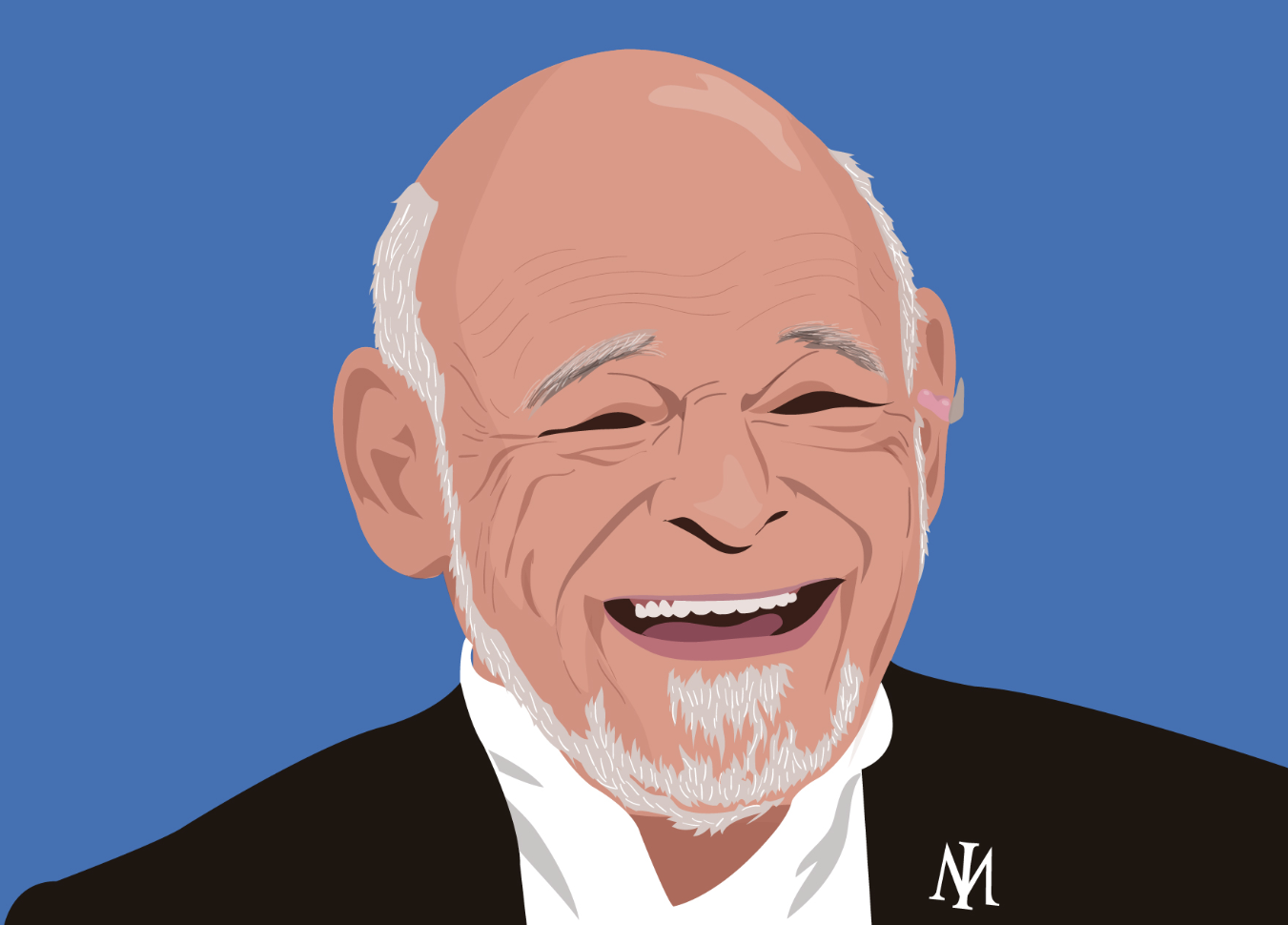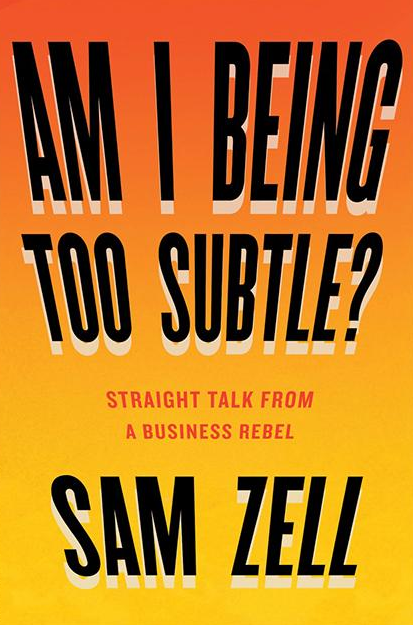I enjoy reading books about the world's greatest investors, particularly autobiographies. Usually I find I learn something new, discover a different angle to investing or rekindle an interesting past idea. And I find so many common threads that run through the thinking and processes employed by the Investment Masters.
Prompted by recommendations from some of my clients, as well as one of the Investment Masters, I just finished reading Sam's Zell's autobiography, "Am I being too Subtle".
Sam Zell is a self-made American billionaire businessman and investor whose nickname the 'grave dancer' originates from his highly profitable large scale property acquisitions after the commercial property crash of the mid-1970s.
I've known of Sam Zell for the last couple of decades and have enjoyed listening to his speeches at various global property conferences during the early days of property securitisation - what was the beginnings of today's global REIT market.
I'll never forget the day the Blackstone Group bid for his listed company Equity Office Properties [EOP]. It was early 2007, and despite our REIT research team's best efforts to convince me otherwise, I was bearish on the REIT market at the time. The morning the bid became public our REIT analyst exclaimed "I told you property was cheap, Blackstone have bid for EOP," to which I responded, "They don't call him the 'grave dancer' for nothing." Needless to say, Sam Zell came out on top in that transaction, as it was only a matter of months before the Global Financial Crisis was upon us.
The book, 'Am I being too Subtle' details how the EOP transaction unfolded and why Sam sold. The offer was too good to refuse, "A Godfather Offer" as Sam called it.
The book is an engaging read which details Sam's early childhood, his parent's brave escape from the Nazi's in Poland and the devastation that wreaked havoc on the family that remained. His parent's escape from Poland and his early upbringing in Chicago had a deep influence on his philosophy and outlook.
The book takes the reader on a journey through Sam's positive and not-so positive investments. It serves as a useful guide to successful investing. Sam Zell comes across as a highly likeable, open-minded, hard working and opportunistic investor who searches beyond conventional wisdom for ideas.
I've included some of my favourite quotes from the book below. Not surprisingly, I've unearthed almost fifty quotes that parallel with the 100 tutorials in the Investment Masters Class. There are, after all, many commonalities between the world's most successful investors.
"Conventional wisdom is nothing to me but a reference point. In fact, I believe it can be a horribly debilitating concept."
"I have an insatiable curiosity, and as a kid I thrived on wandering around my Chicago neighborhood on my own."
"I spend almost my entire day listening to other people, I ask questions, I probe, I raise possibilities."
"I am a voracious consumer of information."
"I look for clarity, and if something's not clear, I get more information."
"Think beyond the norm."
"I don't make assumptions."
"Reputation is your most important asset."
"Everything I've done has been because I've loved doing it."
"I fully realized the value of tenacity. I just had to assume there was a way through any obstacle, and then I'd find it. This is perhaps my most fundamental principle of entrepreneurialism, and to success in general."
"My focus is always on the downside."
"Liquidity equals value."
"I realized that the basics of business are straightforward. It's largely about risk. If you've got a big downside and a small upside run the other way. If you got a big upside and a small downside, do the deal."
"I rely on a macro perspective to identify opportunities and make better decisions."
"Where there is scarcity, price is no object. This basic tenet of supply and demand would later become a governing principle of my investment knowledge."
"I often went back - and still do - to what was written up there on the blackboard when I first walked into Econ 101: Supply and Demand. In fact, much of my career has been about understanding and acting on this basic tenet - whether it's in real estate, oil and gas, manufacturing, or whatever. Opportunity is very often embedded in the imbalance between supply and demand. It could be rising demand against flat or diminishing supply, or flat demand against shrinking supply."
"There's no substitute for limited competition. You can be a genius, but if there's lots of competition, it won't matter. I've spent my career trying to avoid it's destructive consequences."
"The exponential value of scale would influence my assessment of investment opportunities - in and outside of real estate - throughout my career."
"I like to invest below replacement cost, thereby creating a competitive advantage."
"Replacement cost mattered more to me than rents or comparable prices or vacancies or economic growth or stock price. This was because replacement cost determined the price of future competition."
"We liked asset-intensive investments because if the world ended, there would be something to liquidate."
"Jay [Pritzker] taught me to use simplicity as a strategy. He had an uncanny ability to grasp an extremely complex situation and immediately locate the weakness. He says that if there were twelve steps in a deal, the whole thing depended on just one of them. The others would work themselves out or were less important. He had a laser focus on risk."
"To me risk-taking rests on the ability to see all the variables and then identify the ones that will make or break you."
"Some of the best deals of course, are the ones you don't do.”
"Among my most salient takeaways was the value of optionality."
"I have always believed that every day you choose to hold an asset, you are also choosing to buy it."
"Sentimentality about an asset leads to a lack of discipline."
"I am industry agnostic."
"No matter how much time you put into addressing risk, sometimes there are unforeseen events that blindside you."
"Being global, if not in business then in mind-set, isn't really a choice, in my opinion. It's a mandate, a responsibility, and a thrill."
"I've always believed in buying into in-place demand rather than trying to create it."
"As a risk-taker my greatest fear is not having information that might protect me from making a mistake. The only way I can do that is to create an atmosphere where there are no silos."
"I'm a great believer in aligned interests, skin in the game."
"Trying to be right 100% of the time leads to paralysis."
"You can never be truly successful unless you give to others."
It's time to invest, 'grave dancer' style ....


